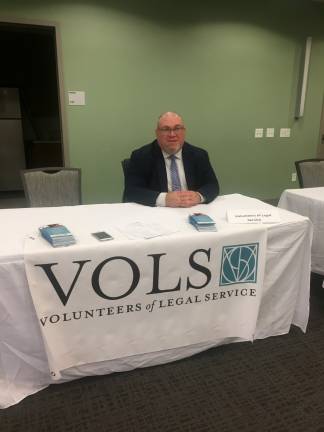Finances and fraud

The transition to living on a fixed income can be a vulnerable time for seniors as they adjust to a new financial reality. Peter Kempner, who serves as the legal director and the Elderly Project director for the Volunteers of Legal Service, says seniors need to be cautious and thoughtful when it comes to dealing with new problems ushered in by retirement. From housing insecurity to phone scams, Kempner talked to Straus News about what seniors can do to when facing these issues.
What is one of the most common financial difficulty seniors who live in New York City have to figure out once they retire?
The biggest challenge for most New York City’s seniors living on fixed income is keeping up with the rising costs of housing in the city.
What resources or strategies are available to mitigate the problem?Seniors need to make sure that they take advantage of the programs that are available to them to keep rising housing costs in check. If they are eligible, seniors should take advantage of the Senior Citizen Rent Increase Exemption (SCRIE) program which freezes the rent for seniors living in regulated housing and the Senior Citizen Homeowners’ Exemption (SCHE) program which gives a property tax break for seniors who own their home, condo or co-op. Both of these program are very underused and many seniors do not know they are eligible for this benefit.
(Eligibility criteria can be found for SCRIE at https://www1.nyc.gov/site/rentfreeze/index.page; and SCHE at https://www1.nyc.gov/site/finance/benefits/landlords-sche.page)
Something we’ve seen a lot of recently are phone scams that target seniors by claiming to be the IRS or the Social Security Administration and are able to defraud people, sometimes of thousands of dollars. What do these scammers say that are so convincing?I think that so many seniors rely on the Social Security Administration and say that is someone’s sole source of income; they call you and say that there is a problem with your social security, then that really raises a lot of flags for folks and makes them concerned. I think that that is rare but it’s a bulk business what they’re doing. They call hundreds if not thousands of people and they get just one or two people to bite and are able to get a lot of money out of that person then it makes the whole criminal enterprise worth it.
What can people do to protect themselves? What should you do if you think you’re a victim? The first thing to do is to never give your personal information over phone to someone who is cold calling you. Your bank is already going to know your name and address and they’re never going to ask you for your password or Social Security number over the phone. If there’s really a problem with your account, you can go into the bank and not just talk to someone who’s cold calling you. That’s the big one. Don’t give the personal information.
If you’re a victim, that’s much harder. Sometimes the police are very reluctant to do a report on these kinds of things because it’s not a tangible crime in the same way that someone snatching your purse is. Sometimes it takes a little pushing at the police department to get them to file a report on your behalf. A police report is going to be really essential to them if they want to recover any loss that they had because of the scam. Any financial institution or government agency is going to ask to see a police report. That’s going to be one of the first steps.
Do we see this online as well? Absolutely. It’s not just emails. There are malware that gets into people’s computers and there are popups that come onto the screen that says you have a problem with your software or you have to update it. You need to put your credit card in order to update it and other identifying information that could lead to identity theft. One should be very wary of any kind of popups or malware on your computer. I think it’s really good to keep your antivirus software up to date so you don’t fall victim to that kind of scam.